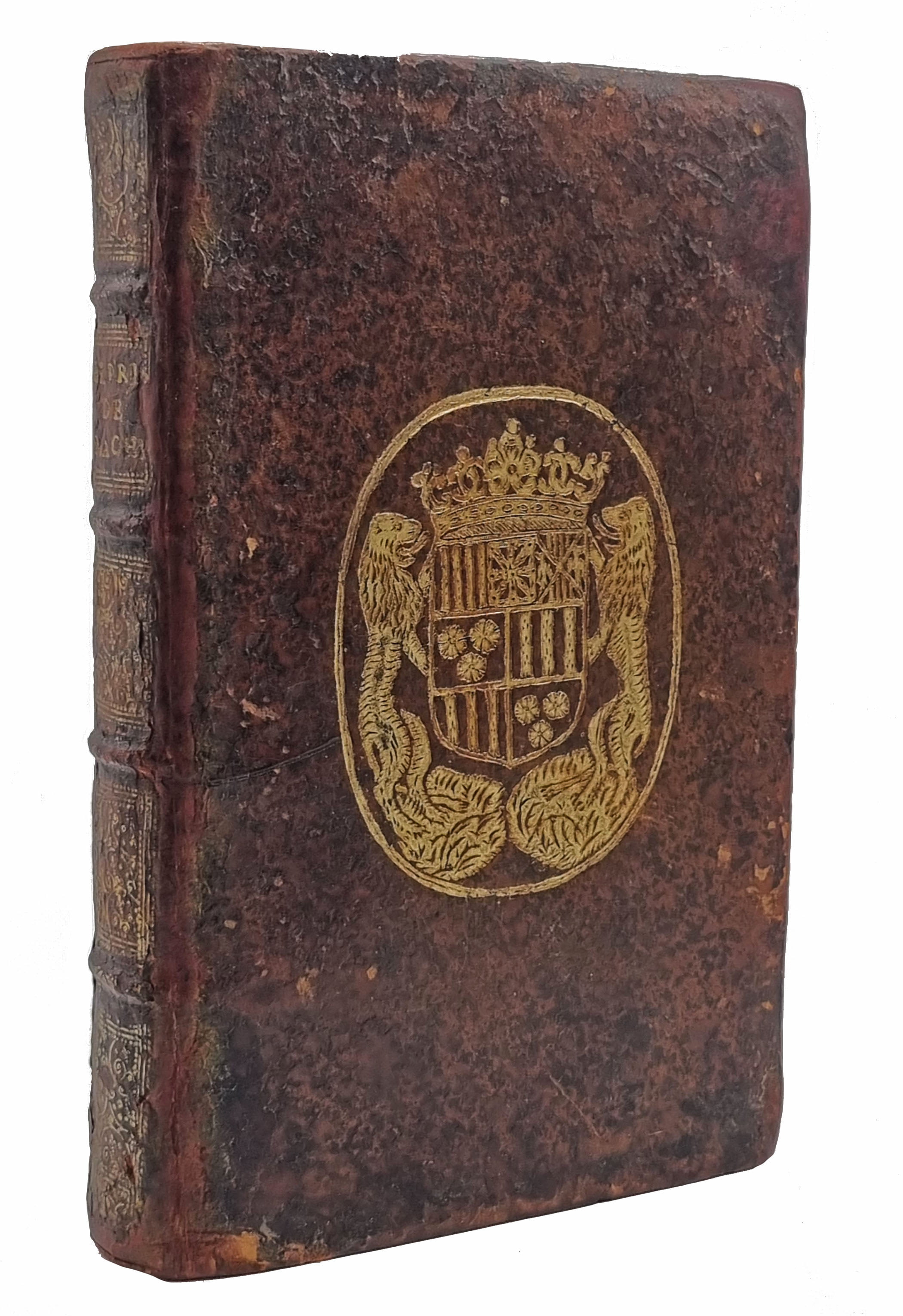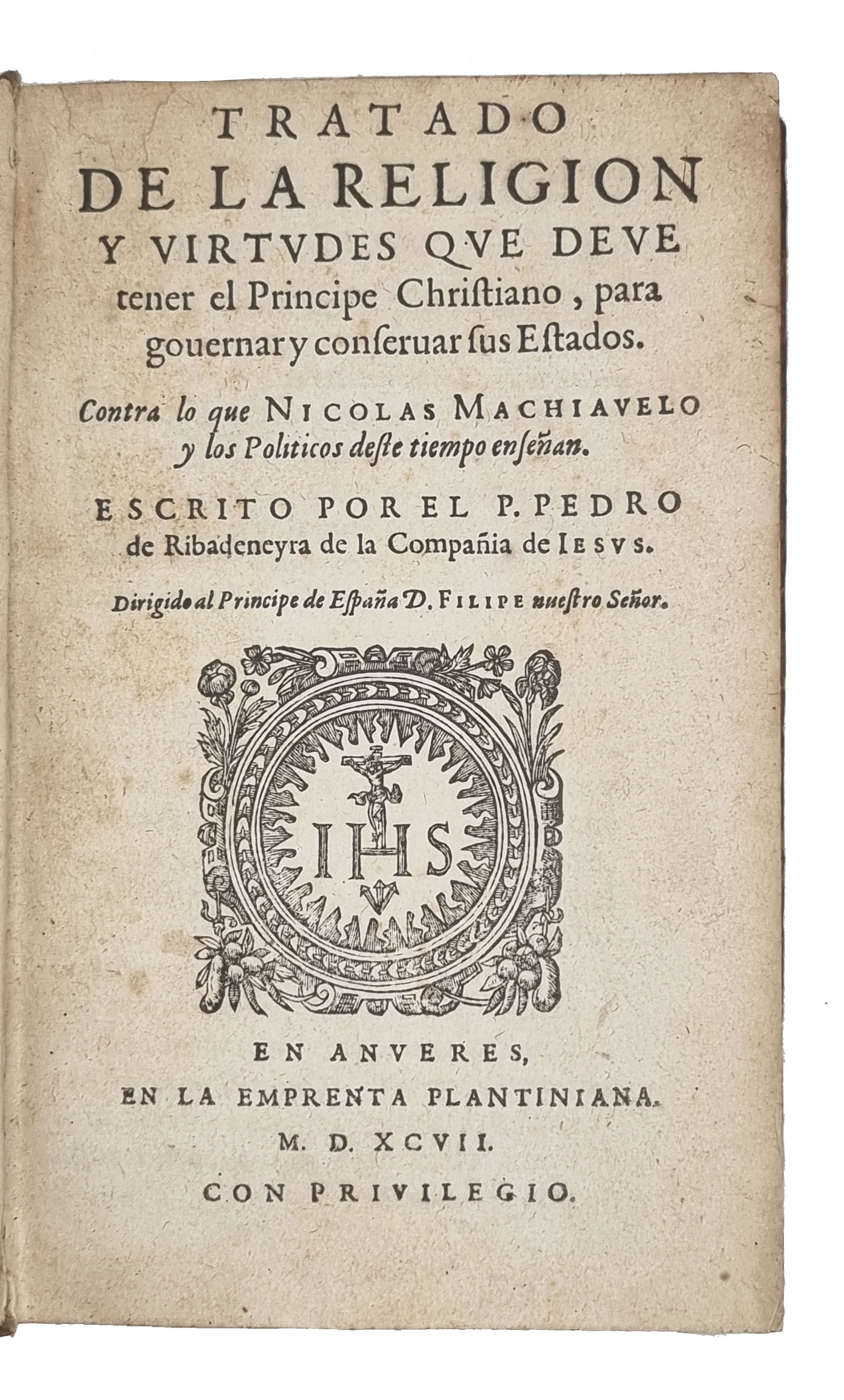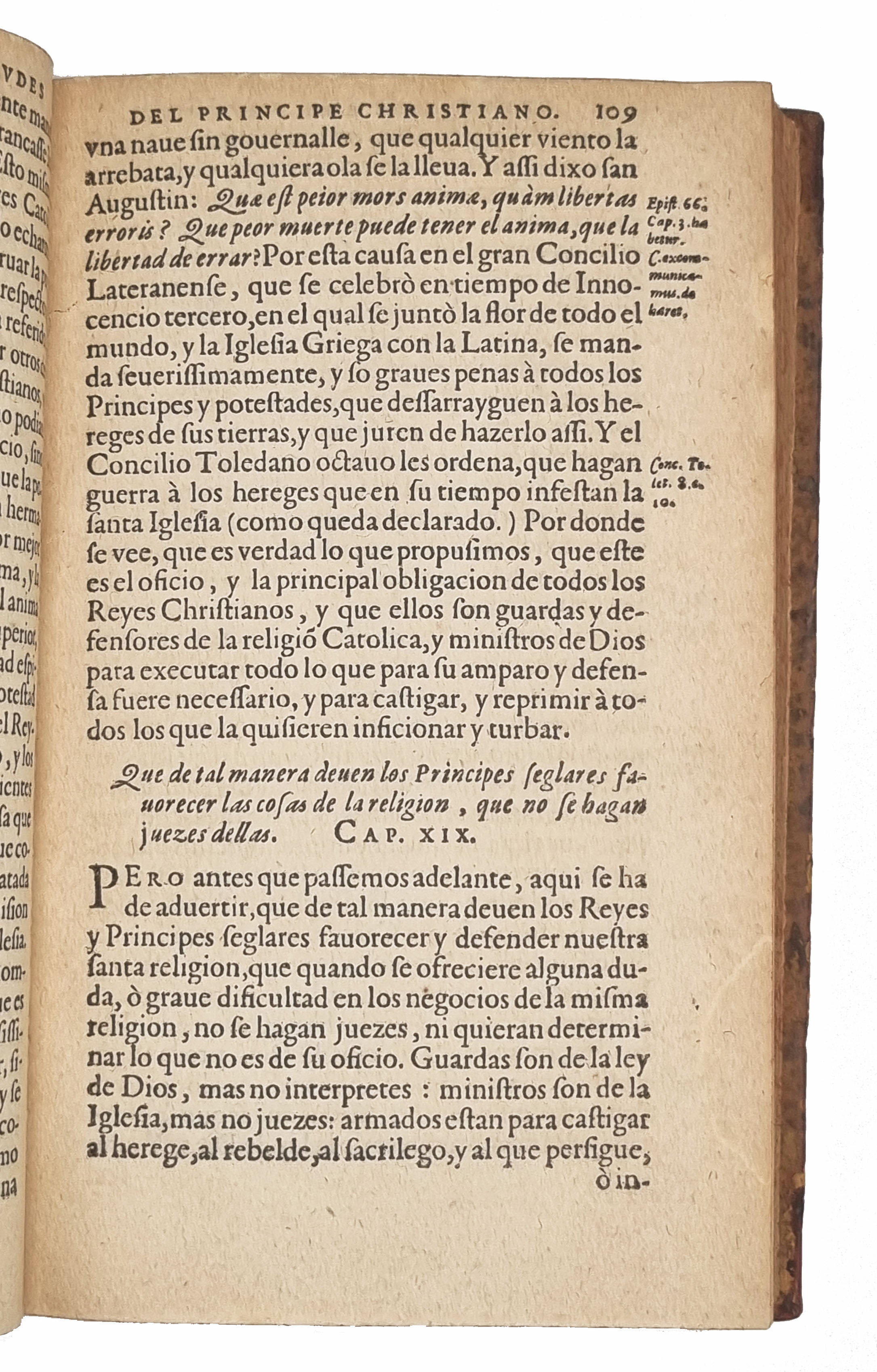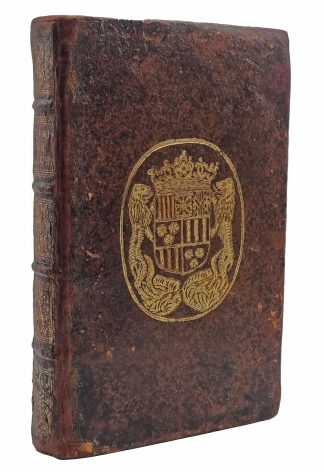RIBADENEYRA, Pedro de
A CATALAN PATRIOT\\\'S COPY
Tratado de la religion y virtudes que deue tener el principe christiano.
Antwerp, en la emprenta Plantiniana, 1597£2,750.00
8vo. pp. 437 (ix). Roman letter, with Italic. Society of Jesus device to t-p, small engraved arms of Navarre pasted at end of ‘privilege’, printer’s woodcut compass device to last. Light age browning, the odd small ink spot, a good copy in slightly later mottled calf, arms of the marquis Josep de Margarit i de Biure gilt to covers, edges speckled red. Rebacked, gilt spine, expertly remounted, minor repair to corners. The odd early annotation.
The gilt arms belong to the Catalan patriot Josep de Margarit i de Biure (1602-85), member of a baronial family from Girona. Josep fought as a general of the Catalan army siding with the French against Spanish aggression into Catalan territory. For his support, he was appointed governor of Catalonia by Louis XIII. In particular, he played a major part in the Catalan ‘revolta dels Segadors’ (1640-52) which concluded with the capitulation of Barcelona to Spain after a dramatic siege. As a reward for his courage, his Aguilar estate was turned into a marquisate by Louis XIV. Josep spent the last years of his life in exile in Perpignan where he continued to defend Catalan identity in Roussillon, annexed to France with the Treaty of the Pyrenees (1659). The bearing of the arms of Catalonia, Navarre and Aragon-Sicily had been granted by King Juan II to Josep’s C15 ancestor, the bishop Juan Margarit, as a reward for his defence of the city of Girona.
The C17 annotator of this copy interested in the long ‘letter to the Christian reader’ may have been Josep de Margarit himself. In a section discussing the reasons why a prince might want to continue a war through violence or political pressure, he highlighted a passage stating that ‘in order to destroy any city or province without a war, there is nothing like presenting them as places full of sin and vice, and to persuade [his subjects] that past injuries are never forgotten, despite the benefits received’.
Very good, clean, well-margined copy of this intriguing anti-Machiavellian Jesuit work in Castilian. This is the fourth edition published by the Antwerp printer Jan Moretus, who held the royal privilege for some of the most successful liturgical works of the Counter- Reformation. Born and raised in Toledo, Pedro de Ribadeneyra (1527-1611) was admitted to the Jesuit order in 1540 by Ignatius of Loyola, of whom he would later write the first biography. After studying theology and rhetoric at Leuven, Paris and Padua, he taught at Italian and German Jesuit colleges, was sent on missions to Belgium and England by Ignatius himself and held important posts in Italy. Dedicated to Philip II of Spain, ‘Tratado’ presented Machiavelli’s ideal Christian prince as a misleading model contrived by an impious and godless ‘politician’—a member of ‘the worst sect invented by Satan’ to destroy piety, virtue and godly fear. He opposed the Machiavellian belief that history and ‘reason of state’ were shaped by fortune, not religion and virtue, explaining how religion and ‘reason of state’ were instead inseparable, and how a true Christian prince should defend the Catholic faith whilst piously administering government. The second part explores the fundamental concept of dissimulation—a feigned ‘mask of virtue’ which Machiavelli’s prince should sometimes wear. Ribadeneira condemned dissimulation as a sin except for good reasons, e.g., maintaining secrecy for the sake of political prudence—a behaviour equally adopted by Jesuits through ‘equivocation’, an ironically near-Machiavellian variation of dissimulation used to escape persecution.
BM STC Dutch, p. 176; Adams II, 462; Peeters-Fontainas II, 1123; Palau y Dulcet XVI, 435(1595 ed.). Not in Brunet. M. Prades Vilar, ‘La teoría de la simulación de Pedro de Ribadeneyra y el “maquiavelismo de los antimaquiavélicos”’, Ingenium 5 (2011), 133-65.In stock





